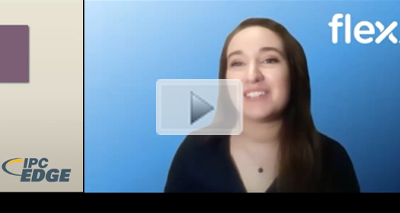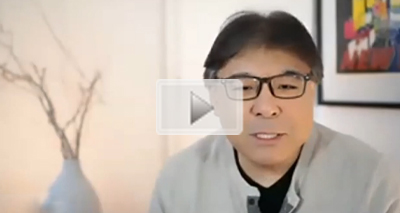Key Summary
• Biden is expected to prioritize rebuilding U.S. manufacturing and improving supply chain resiliency
• His administration may support large investments in infrastructure, industrial base strategy, and trusted supplier programs
• Trade policies are likely to shift toward reduced tariffs, renewed global partnerships, and stronger ties with allies
• Regulation will increase, including stricter oversight, PFAS limits, and climate initiatives
• Workforce development may expand through grants, training, apprenticeships, and online learning
If there is one takeaway from 2020, it’s that “business as usual” is in the rearview mirror. Supply chain disruptions associated with the coronavirus pandemic and the ensuing global recession have illustrated the shortsightedness of longstanding U.S. policy that has prioritized the growth of global trade over the resiliency of U.S. manufacturing.
In this vein, IPC is encouraged that President-elect Joe Biden has spoken often of rebuilding U.S. domestic manufacturing capacity, and we’re hopeful it foretells how his administration will operate. More so than at any other time in the last half-century, U.S. policymakers in both parties understand the need to better support U.S. manufacturing and address supply chain concerns.
Below is a rundown of what a Biden administration could mean for the electronics manufacturing industry in the U.S. and around the world.
Manufacturing Policy. IPC applauds the ambitious aims of Biden’s “Made in All of America” plan. IPC has long advocated for additional investment in the nation’s infrastructure and industrial base, and the $400 billion envisioned by Biden would bolster U.S. manufacturing if allocated strategically.
We are also interested in plans to implement new credit facilities and other funding incentives to help U.S. manufacturers retool and revitalize manufacturing facilities, an effort which aligns with IPC’s Factory of the Future initiative.
With the door open to a serious dialogue about U.S. industrial base strategy, IPC also will urge the Biden administration to consider measures like establishing metrics for industrial base resiliency, with capacity, capabilities, security and geographic diversity as key factors. We also will continue to promote “trusted supplier” programs in domestic and international supply chains for critical sectors.
Tax and Trade. All signs indicate that a Biden administration will seek a return to more progressive tax and trade policies. On taxes, we do not expect a push to revamp the tax code in the immediate future, given other priorities; but over time, the Democrats may seek to recoup some of the 2017 tax cuts. On trade, the Biden administration is likely to take a more measured approach with China, dial back tariffs, and foster a stronger relationship with the World Trade Organization – all positives for IPC members. We also are hopeful that the U.S. will rebuild trade relationships with its allies, including a possible revival of multilateral trade pacts with Europe and Asia. We’ll also renew our call for a U.S.-Mexico-Canada to spur greater economic collaboration across North America.
Regulation. Make no mistake: A Biden administration will be a sharp turn from the deregulation we have seen over the last four years. We anticipate Biden to start by reversing nearly 100 regulatory rollbacks from the Trump administration and initiating new actions like limits on “forever chemicals,” also known as PFAS, some of which are used in electronics manufacturing. We expect major initiatives on climate change, but any new policies are likely to be incremental and designed to complement, not hinder, economic growth. We also expect a renewed focus on data collection, compliance and enforcement. To that end, we hope a Biden administration will ensure that any new regulatory actions are practical, cost-effective, and prioritized according to actual levels of risk. We look forward to working constructively with the new administration on this front and sharing our members’ considerable expertise.
Workforce. One of the most difficult challenges facing today’s electronics industry is a chronic shortage of adequately skilled workers. A Biden administration will likely reinvigorate initiatives to promote educational attainment, especially for historically underrepresented groups, and will seek to establish grants for participation in credentialing and job training programs. We also hope the administration will consider investing in 21st century workforce opportunities, online learning platforms, and apprenticeship programs.
Looking Forward. IPC welcomes the opportunity to work with the Biden administration and all policymakers -- just as we have with every prior Administration and Congress. We will continue to promote policies in the U.S. – as we do worldwide – that strengthen the competitiveness and resiliency of electronics manufacturers, while upholding our responsibility to protect human health and the environment.
COVID-19 has demonstrated the critical role that electronics manufacturers play in protecting and enriching our lives. Electronics-based devices and systems make people’s lives safer, healthier, more connected, secure, and fun, and IPC advocates for government policies that help make it all possible.
Learn more and stay involved: Join me for a conversation with Gilbert Kaplan, a former Undersecretary of Commerce for International Trade, on the outlook for U.S. manufacturing competitiveness and what we should expect from the Biden administration.
And as always, we invite you to reach out to us – your IPC Government Relations team – if you have any questions or suggestions or want to get involved in IPC’s advocacy work. Your voice and expertise can help your company and the entire industry. Learn more today at IPC.org/advocacy.











